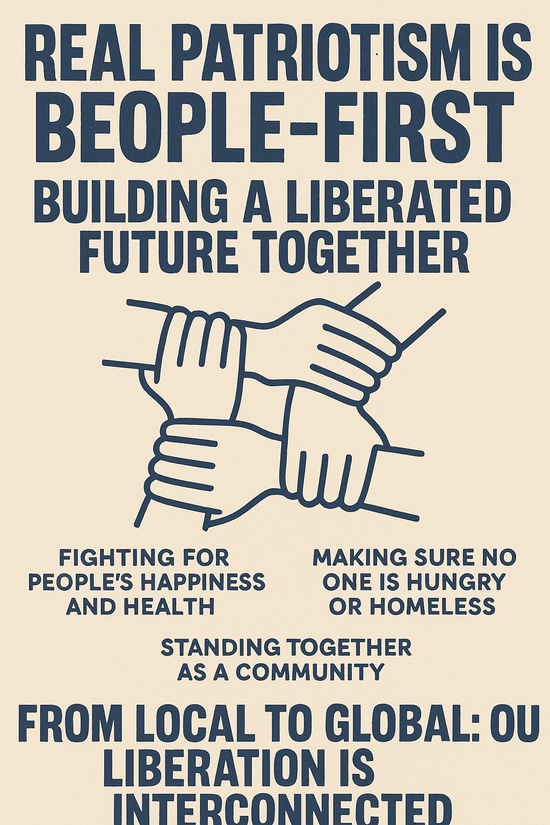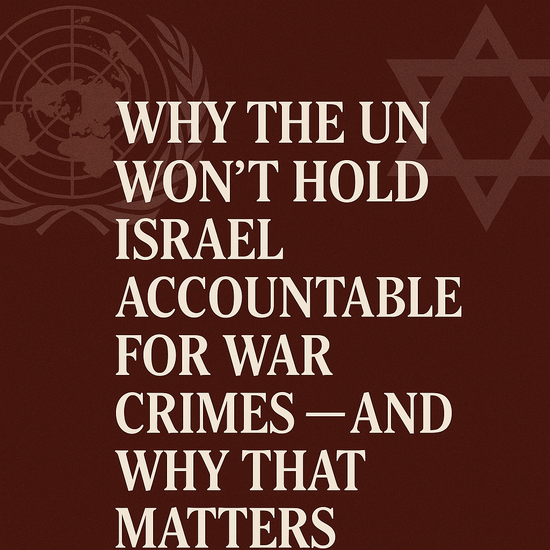Why Hasn’t the UN Created a War Crimes Tribunal for Israel Like It Did for Yugoslavia?
In 1993, following the horrors of the Yugoslav Wars, the world said, “Never again,” and the United Nations backed it up. The International Criminal Tribunal for the former Yugoslavia (ICTY) was established to hold perpetrators of war crimes accountable, delivering long-overdue justice to victims of ethnic cleansing, genocide, and mass violence.
So, why — after decades of violence, displacement, siege, and reported war crimes in Palestine — has the UN not created a similar tribunal for Israel?
This question reveals a deep, painful truth: international justice is not always about what’s right — it’s about who holds the power.
The UN Security Council: Where Justice Meets Politics
The ICTY was created by the UN Security Council (UNSC), which includes five permanent members: the U.S., U.K., France, Russia, and China. Each holds veto power and can block any resolution — including ones for international investigations.
The United States, a long-time ally of Israel, has used its veto over 45 times to block resolutions critical of Israel, including those that call for humanitarian aid or accountability.
Unlike Yugoslavia — which had no major global backer protecting it — Israel benefits from political protection that prevents action, no matter the evidence.
Isn’t the ICC Investigating?
Yes, but there's a catch.
In 2021, the International Criminal Court (ICC) announced a formal investigation into war crimes committed in Palestine since 2014 — by both Israeli forces and Palestinian groups.
But enforcement is another story. Israel and the U.S. don’t recognize the ICC, and the court relies on member states to arrest suspects. Without cooperation, justice is limited to paper and promises.
Why Was It Easier for Yugoslavia?
Yugoslavia lacked a major Security Council ally. There was no powerful country defending the regime accused of war crimes. That made consensus possible — and accountability swift.
Israel, by contrast, has one of the most powerful nations in the world consistently protecting it.
This isn’t about fairness. It’s about global power dynamics.
The Evidence Is Overwhelming
International watchdogs have made their assessments crystal clear:
-
Amnesty International (2022): Israel is operating a system of apartheid against Palestinians.
-
Human Rights Watch (2021): Israeli authorities are guilty of crimes of apartheid and persecution.
-
UN Special Rapporteurs (2022): The occupation constitutes apartheid and must end.
These aren’t fringe opinions. These are global institutions stating plainly: what’s happening to Palestinians violates international law.
The Human Cost
For Palestinians, this is not theoretical.
Entire generations have grown up under occupation, siege, checkpoints, bombings, and the constant threat of displacement. The Gaza Strip has been under blockade since 2007, and the UN has repeatedly warned it is becoming “unlivable.”
Children in Gaza are experiencing lifelong trauma, with UNICEF reporting that no place is safe for them — not homes, not schools, not hospitals.
The world sees this — and yet the machinery of justice stalls.
A Global Movement for Accountability
Change doesn’t only come from institutions. It comes from people.
Across the world, movements for Palestinian liberation are growing — from protests to petitions, legal cases to art. South Africa’s genocide case against Israel at the ICJ has further fueled global momentum.
People are speaking up, pushing back, and forcing uncomfortable conversations into the mainstream.
Justice Is a Choice
International law doesn’t fail because it lacks rules — it fails when those in power choose not to enforce them.
The world was able to act for Yugoslavia. The evidence for action in Palestine is just as strong — if not stronger. What’s missing is the political will.
But will is something we can build. And that starts with awareness, conversation, and collective pressure.
Our Collective Power
At The Liberation Collective, we stand for truth, solidarity, and justice — not just as ideals, but as actions.
When we speak out, support human rights, and demand change, we challenge the systems that profit from injustice. We amplify the voices of those who are silenced.
We believe in building a world where liberation is for everyone, not just those with power.
Justice delayed is justice denied. But justice demanded — relentlessly, unapologetically — is justice that becomes real.
Stay informed. Stay outraged. Stay active. We’re in this together.




